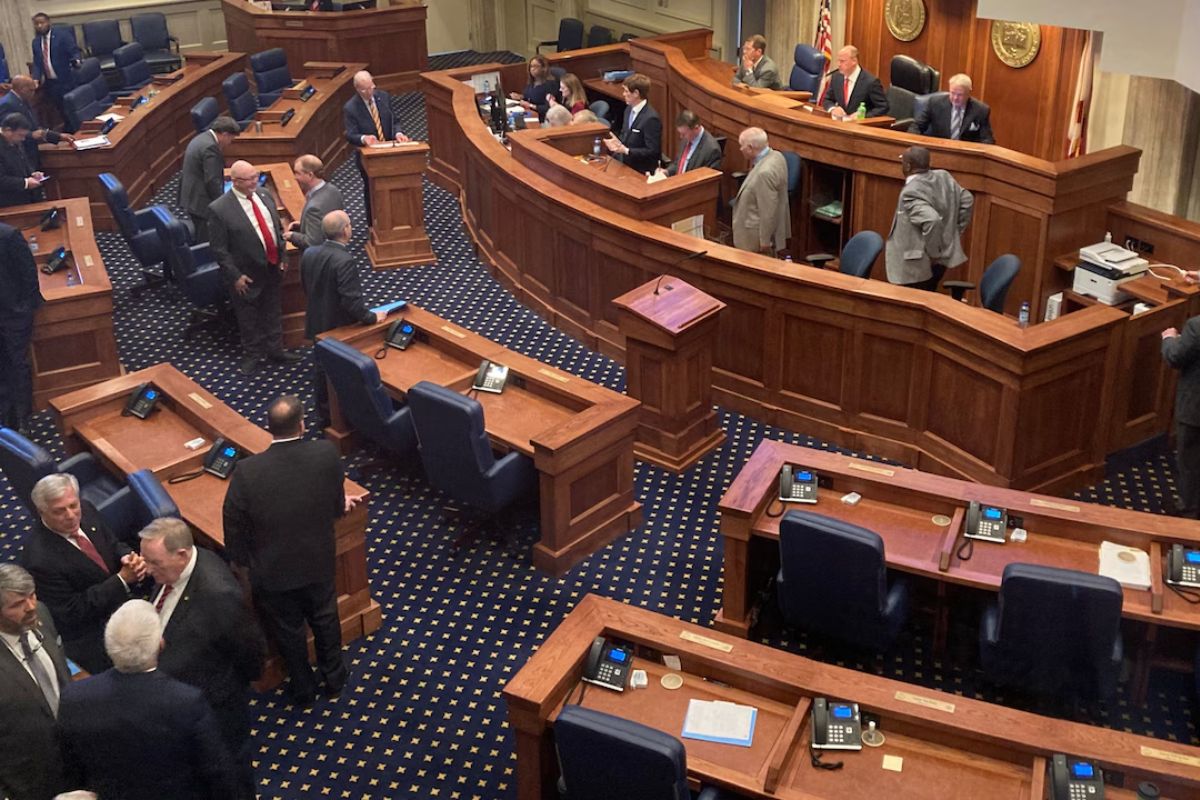Alabama Legislators Shift Focus: As the Alabama legislative session progresses, legislators are turning their attention to controversial decisions such as bans on ballot harvesting and delivery of absentee ballots. Key priorities in the upcoming sessions include in vitro fertilization, contraceptive protection, and healthcare for veterans.
Lawmakers face challenges in budgetary tasks, including passing general and education budgets while maintaining financial equilibrium. Striking a balance between addressing critical issues and prudent fiscal management remains paramount. The second half of the session promises to be eventful as legislators navigate through these pressing matters.
Alabama Legislature’s Progress at Midpoint Sparks Controversy
At the midpoint of the Alabama legislative session, the significant strides made by the state’s lawmakers have ignited contentious debates and raised pivotal questions about the direction of key policies and legislation. One of the most debated decisions was the passage of a bill banning ballot harvesting. This bill specifically prohibits the delivery of absentee ballots under certain circumstances, a move that has polarized opinions and sparked heated discussions among legislators and the public alike.
Supporters of the bill argue that it is essential for ensuring the integrity of the electoral process by safeguarding against potential fraud that could arise from the collection and delivery of absentee ballots by third parties. On the other hand, opponents contend that such a ban could disenfranchise certain groups of voters who may rely on ballot harvesting services to participate in the democratic process.
The passage of this legislation sets the stage for further deliberations and challenges as the session progresses, with both sides preparing to present their arguments and advocate for their positions when the legislature reconvenes.
Legislative Agendas and Priorities in the Second Half of the Session
As the Alabama legislative session progresses, lawmakers are gearing up to address pivotal legislative agendas and priorities in the second half of the session. Key issues on their agenda include in vitro fertilization (IVF), contraceptive protection, the Working for Alabama bill package, and the establishment of a dedicated healthcare system for veterans through House Bill 197.
House Minority Leader Anthony Daniels has highlighted the importance of proactive measures, especially in light of pending Supreme Court rulings. The emphasis on IVF and contraceptive protection underscores a commitment to advancing reproductive healthcare rights. Additionally, initiatives like the Working for Alabama bill package demonstrate a focus on economic growth and job creation within the state.
House Bill 197’s aim to establish a healthcare system dedicated to veterans reflects a dedication to serving those who have served the country. These legislative priorities indicate a holistic approach to addressing pressing issues and fulfilling the needs of Alabama’s constituents as the session moves forward.

ALSO READ: Superintendent Sparks Controversy With ‘Parental Right to Know’ Bill
Challenges and Objectives Ahead for Alabama Lawmakers
Tackling a complex landscape of legislative tasks and fiscal responsibilities, Alabama lawmakers confront a myriad of challenges and objectives in the upcoming legislative agenda. Political analyst Steve Flowers underscores the pressing need for passing both general and education budgets while maintaining budgetary equilibrium despite favorable economic conditions.
Efficiency and diligence are paramount as legislators navigate through pending matters before the session’s conclusion in mid-May. The emphasis on finalizing legislative priorities and budgetary considerations underscores the demanding nature of the remaining session for Alabama lawmakers. Striking a balance between addressing key issues and ensuring financial prudence poses a significant challenge.
These tasks necessitate a thorough approach that considers the diverse needs of the state while adhering to fiscal responsibility. Alabama legislators must navigate these challenges with precision and foresight to effectively address the multifaceted demands of the legislative landscape. The upcoming period is vital for lawmakers to demonstrate strategic decision-making and leadership in fulfilling their obligations to the state and its citizens.
News in Brief
In wrapping up, as the Alabama Legislature reaches its midpoint, there is a shift in focus towards addressing new challenges and objectives.
The legislative agendas and priorities for the second half of the session are pivotal in determining the direction of policy decisions. Alabama lawmakers will need to navigate controversy and work towards finding common ground to effectively serve the interests of their constituents.
The second half of the session will be a critical period for shaping the future of the state.

